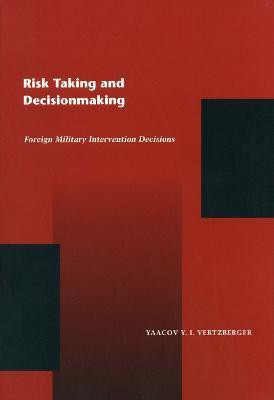Risk Taking and Decision Making(English, Paperback, Vertzberger Yaacov Y. I.)
Quick Overview
Product Price Comparison
Risks are an integral part of complex, high-stakes decisions, and decisionmakers are faced with the unavoidable tasks of assessing risks and forming risk preferences. This is true for all decision domains, including financial, environmental, and foreign policy domains, among others. How well decisionmakers deal with risk affects, to a considerable extent, the quality of their decisions. This book provides the most comprehensive analysis available of the elements that influence risk judgments and preferences. The book has two dimensions: theoretical and comparative-historical. The study of risk-taking behavior has been dominated by the rational choice approach. Instead, the author adopts a socio-cognitive approach involving: a multivariate theory integrating contextual, cognitive, motivational, and personality factors that affect an individual decisionmaker's judgment and preferences; the social interaction and structural effects of the decisionmaking group and its organizational setting; and the role of cultural-societal values and norms that sanction or discourage risk taking behavior. The book's theoretical approach is applied and tested in five historical case studies of foreign military interventions. The richly detailed empirical data on the case studies make them, metaphorically speaking, an ideal laboratory for applying a process-tracing approach in studying judgment and decision processes at varying risk levels. The case studies analyzed are: U.S. interventions in Grenada in 1983 and Panama in 1989 (both low risk); Soviet intervention in Czechoslovakia in 1968 (moderate risk): U.S. intervention in Vietnam in 1964-68 (high risk); and Israel's intervention in Lebanon in 1982-83 (high risk).


